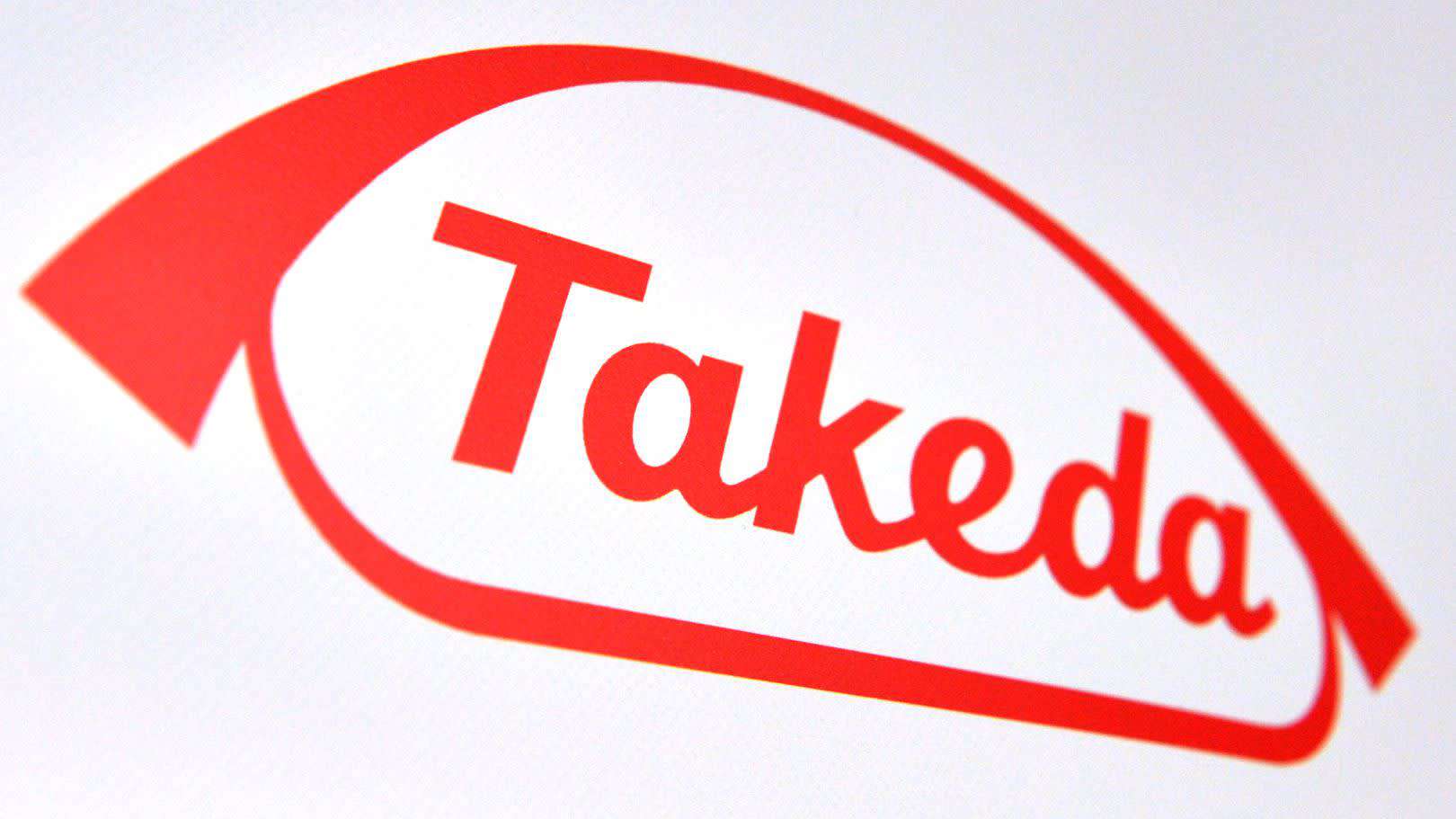
Just under a year after closing its $62bn acquisition of Shire, Takeda has laid out the highlights of its new pipeline, pointing to 12 new drugs with the potential to launch in the next five years.
That first wave of new molecular entities (NMEs) has the potential to generate 14 approvals and collectively add more than $10bn in aggregate peak sales, according to R&D chief Andy Plump at the company’s R&D update in New York.
Add that to Takeda’s 14 current growth products – which could get approved for up to 20 new indications between now and 2024 – and the picture is one of near-term and sustained growth and a big return on its annual R&D investment of $4.5bn, he said.
The 12 NMEs – all said to be either first- or best-in-class – span oncology, rare diseases, neuroscience, gastro-enterology and vaccines – will be followed by a second wave of therapies based on novel mechanisms and new platforms like cell and gene therapies, according to the Japanese drugmaker.
The 12 first-wave NMEs are:
TAK-721 for eosinophilic oesophagitis: TAK-721 is an oral suspension formulation of the well-established steroid drug budesonide that is designed to coat the oesophagus, localising its anti-inflammatory activity. It’s scheduled for regulatory approval in 2020.
TAK-609 for Hunter syndrome: TAK-609 (formerly SHP609) is a new intrathecal formulation of Takeda’s existing intravenous Hunter syndrome therapy Elaprase (idursulfase), but generated disappointing results in a trial reported in 2017. It’s still in development however and is slated for approval in the rare, inherited metabolic disorder in 2021.
Dengue vaccine TAK-003: Takeda’s dengue fever vaccine candidate TAK-003 hit the efficacy mark in a large-scale study reported earlier this month, and seems to be safe in patients with no prior exposure to the virus, a vulnerability that caused problems for Sanofi’s first-to-market Dengvaxia. Takeda is predicting approval in 2021.
Maribavir (TAK-620) for cytomegalovirus infections: Antiviral drug maribavir has a breakthrough designation from the FDA to treat cytomegalovirus infections – a problem in transplant patients – that are resistant or refractory to prior therapy. It’s due for first regulatory verdicts in 2021.
Pevonedistat (TAK-924) for HR-MDS: Pevonedistat is a selective NEDD8 activating enzyme (NAE) inhibitor being developed as a cancer treatment, initially for high-risk myelodysplastic syndromes (HR-MDS), with approval due in 2021, as well as for acute myeloid leukaemia with a potential green light in 2024.
TAK-788 for non-small cell lung cancer: Phase 1/2 results with EGFR/HER2 inhibitor TAK-788 in non-small cell lung cancer (NSCLC) with EGFR exon 20 insertion mutations – a rare form of the disease resistant to current EGFR-targeting drugs – were reported at this year’s ASCO conference and showed promising antitumour activity. It’s up for approval in 2021.
TAK-755 for cTTP: TAK-755 – also known as apadamtase alfa – is a protein replacement therapy in development for chronic thrombotic thrombocytopenic purpura (cTTP), a blood disorder that results in blood clots forming in small blood vessels throughout the body.
TAK-007 for haematologic cancers: TAK-007 is a cord blood-derived chimeric antigen receptor-directed natural killer (CAR NK) cell therapy – directed against CD19 and ‘armoured’ with interleukin-15 – that according to Takeda could be the first CAR therapy approved for outpatient administration. If approved (possibly in 2023) it would be a competitor to Novartis’ and Gilead/Kite’s CART-T therapies – Kymriah and Yescarta, respectively – which also target CD19 receptors.
TAK-611 for MLD: TAK-611 – a recombinant cerebroside sulfatase – is being developed by Takeda as an enzyme replacement therapy for the treatment of metachromatic leukodystrophy (MLD), a rare hereditary disease characterised by the accumulation of toxic lipids that destroy the myelin sheath surrounding neurons. Takeda thinks it can be approved in 2023.
Soticlestat (TAK-935) for DEE: Soticlestat is an inhibitor of the enzyme CH24H that is in development for developmental and epileptic encephalopathies (DEE), including Dravet syndrome, and is tipped for approval in 2023. It is thought to regulate levels of a neutrotransmitter called glutamate in the brain that can trigger seizures.
TAK-607 for complications of premature birth: TAK-607 (formerly SHP607) is a recombinant human version of IGF-1 and its binding protein IGFBP-3, thought to play an important role in the development of the foetus in the uterus. It is being tested to see if it can reduce complications in premature infants such as lung disease, and is due for approval in 2024.
Orexin 2 receptor agonist for narcolepsy: Takeda has a programme seeking orexin 2 receptor agonists that it estimates could generate an approved drug for sleep disorder narcolepsy in 2024. In September, it presented proof-of-concept data suggesting one candidate – TAK-925 – increased wakefulness in narcolepsy type 1 compared to placebo.




